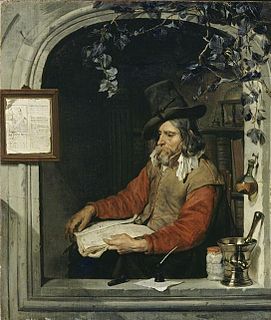
Alexandre Dumas fils was a French author and playwright, best known for the romantic novel La Dame aux Camélias, published in 1848, which was adapted into Giuseppe Verdi's opera La traviata, as well as numerous stage and film productions, usually titled Camille in English-language versions.

Alexandre Dumas, also known as Alexandre Dumas père, was a French writer. His works have been translated into many languages, and he is one of the most widely read French authors. Many of his historical novels of high adventure were originally published as serials, including The Count of Monte Cristo, The Three Musketeers, Twenty Years After, and The Vicomte of Bragelonne: Ten Years Later. His novels have been adapted since the early twentieth century for nearly 200 films. Dumas' last novel, The Knight of Sainte-Hermine, unfinished at his death, was completed by scholar Claude Schopp and published in 2005. It was published in English in 2008 as The Last Cavalier.

Bertrand-François Mahé, comte de La Bourdonnais was a French naval officer and administrator, in the service of the French East India Company.

Édouard Jules Henri Pailleron was a French poet and dramatist.

Charles de Batz de Castelmore, also known as d'Artagnan and later count d'Artagnan, was a famous French Musketeer who served Louis XIV as captain of the Musketeers of the Guard. He died at the Siege of Maastricht in the Franco-Dutch War. A fictionalized account of his life by Gatien de Courtilz de Sandras formed the basis for the d'Artagnan Romances of Alexandre Dumas, père, most famously including The Three Musketeers (1844). The heavily fictionalized version of d'Artagnan featured in Dumas' works and their subsequent screen adaptations is now far more widely known than the real historical figure.

Jean Baptiste Gustave Planche was a French art and literary critic.

The French Academy of Sciences is a learned society, founded in 1666 by Louis XIV at the suggestion of Jean-Baptiste Colbert, to encourage and protect the spirit of French scientific research. It was at the forefront of scientific developments in Europe in the 17th and 18th centuries, and is one of the earliest Academies of Sciences.
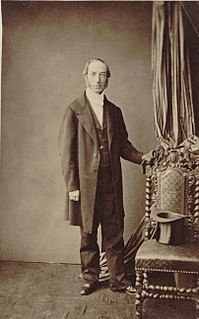
Alfred Malherbe was a French magistrate and amateur naturalist born in Mauritius to Pierre Marie François Malherbe and Rosalie Le Meusnier Molineuf. The family originally came from Metz. Alfred became the administrator of the Museum of Metz.

19th-century French literature concerns the developments in French literature during a dynamic period in French history that saw the rise of Democracy and the fitful end of Monarchy and Empire. The period covered spans the following political regimes: Napoleon Bonaparte's Consulate (1799–1804) and Empire (1804–1814), the Restoration under Louis XVIII and Charles X (1814–1830), the July Monarchy under Louis Philippe d'Orléans (1830–1848), the Second Republic (1848–1852), the Second Empire under Napoleon III (1852–1871), and the first decades of the Third Republic (1871–1940).

The Journal des débats was a French newspaper, published between 1789 and 1944 that changed title several times. Created shortly after the first meeting of the Estates-General of 1789, it was, after the outbreak of the French Revolution, the exact record of the debates of the National Assembly, under the title Journal des Débats et des Décrets.
The Mercure de France was originally a French gazette and literary magazine first published in the 17th century, but after several incarnations has evolved as a publisher, and is now part of the Éditions Gallimard publishing group.

Thomas-Alexandre Dumas Davy de la Pailleterie was a general in Revolutionary France and after Abram Petrovich Gannibal in Imperial Russia, was one of the highest-ranking men of African descent ever in a European army. He was the first person of color in the French military to become brigadier general, the first to become divisional general, and the first to become general-in-chief of a French army. Dumas and Toussaint Louverture were the two highest-ranking officers of sub-Saharan African descent in the Western world until 1975, when "Chappie" James achieved the equivalent rank of four-star general in the United States Air Force.
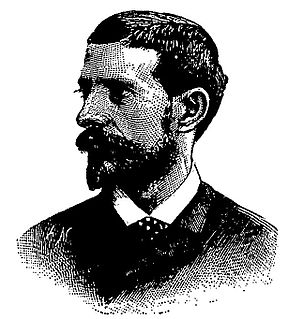
Alfred Albert Martineau was a notable historian and colonial administrator in the French Colonial Empire.
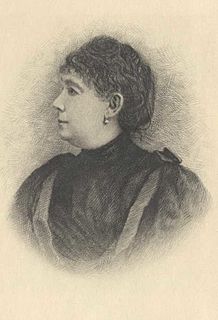
Marie Thérèse Blanc, better known by the pseudonym Thérèse Bentzon was a French journalist, essayist, and novelist, for many years on the staff of the Revue des Deux Mondes. She was born at Seine-Port, Seine-et-Marne, a small village near Paris, traveled widely in the United States, and wrote of American literature and social conditions.

Jean-Pierre Thiollet is a French writer and journalist.

Pierre-François Martin-Laval is a French actor, film director, screenwriter and theatre director. PEF is well known in France for his acting performances in musical comedy but also in serious plays. He studied at a famous French school of acting: Cours Florent. During his drama studies, he met his comrades with whom he formed a troop called 'Les Robins des Bois', a French comedy team formed in 1996. Initially called The Royal Imperial Green Rabbit Company, they renamed themselves after their first real success, a play titled Robins des bois.
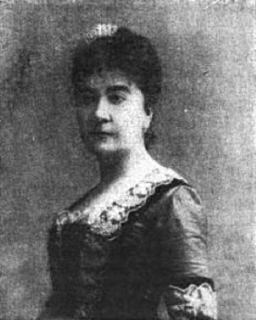
Mathilde-Marie Georgina Élisabeth de Peyrebrune was a key French proto-feminist Belle Époque writer of popular novels. She was "one of the most widely read women in France", and one of the country's most popular women novelists.
Christophe Annedouche was a French engraver from Paris. He is known for his natural history illustrations in works such as Georges Cuvier's Le Règne Animal.
Jacques-Germain Chaudes-Aigues was a French journalist and writer.




